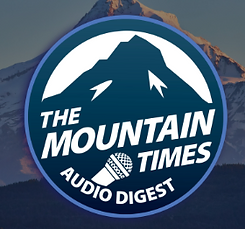Hoodland Fire District #74 deployed resources to assist in battling the devastating wildfires in Southern California. On Saturday, January 11, Division Chief Brian Henrichs and Engineer Pat McAbery departed with Water Tender 351 (WT 351) as part of a strike team consisting of five water tenders and a team leader. “It took the team two days to arrive in Southern California, and they…remain[ed] on assignment for approximately 14 days,” said Scott Kline, Division Chief/Fire Marshal at Hoodland Fire.
The strike team, designated as Strike Team 18, included water tenders from multiple Oregon fire districts, including WT 364 from Canby, WT 382 from Molalla, WT 331 from Estacada, and WT 314R from Clackamas. The team was assigned to the Lilac Fire near Bonsall in San Diego County. A water tender is a specialized fire apparatus capable of carrying approximately 3,000 gallons of water, crucial for combating fires in areas where water access is limited.
The Hoodland Fire District’s involvement was part of a larger effort coordinated by the Oregon State Fire Marshal. A total of 21 strike teams were mobilized to California, bringing with them 75 fire engines, 30 water tenders, and 370 firefighters to support fire suppression efforts.
“Hoodland Fire sent Water Tender 351 with Engineer Pat McAbery and Division Chief Brian Henrichs as part of this larger mobilization effort,” the department shared on their Facebook page.
According to Kelli Ewing, Office Administrator for Hoodland Fire District, “after 14 days of deployment, the crews have successfully returned home. During their mission, they provided much-needed support to the California firefighters, assisting with fire suppression efforts and offering backup support, willing to go wherever needed across multiple locations. Their dedication and hard work were instrumental in aiding the ongoing firefighting efforts, and we’re relieved to report that everyone has returned safely.”
“In addition to their firefighting efforts, the crews had the opportunity to network with teams from other states, exchanging knowledge and strategies that will strengthen future collaborations,” Ewing added.
Ewing also shared that they received noteworthy news from the Oregon Department of Emergency Management (OEM) that “this January, the deployment was the largest to date, involving 97 fire agencies, 370 personnel, and 105 engines. It was Oregon’s largest EMAC deployment ever to any state.” As part of the Emergency Management Assistance Compact (EMAC), Oregon has been deploying firefighting assets to California since 2017.



